What one of America's most lively sporting events says about the economy
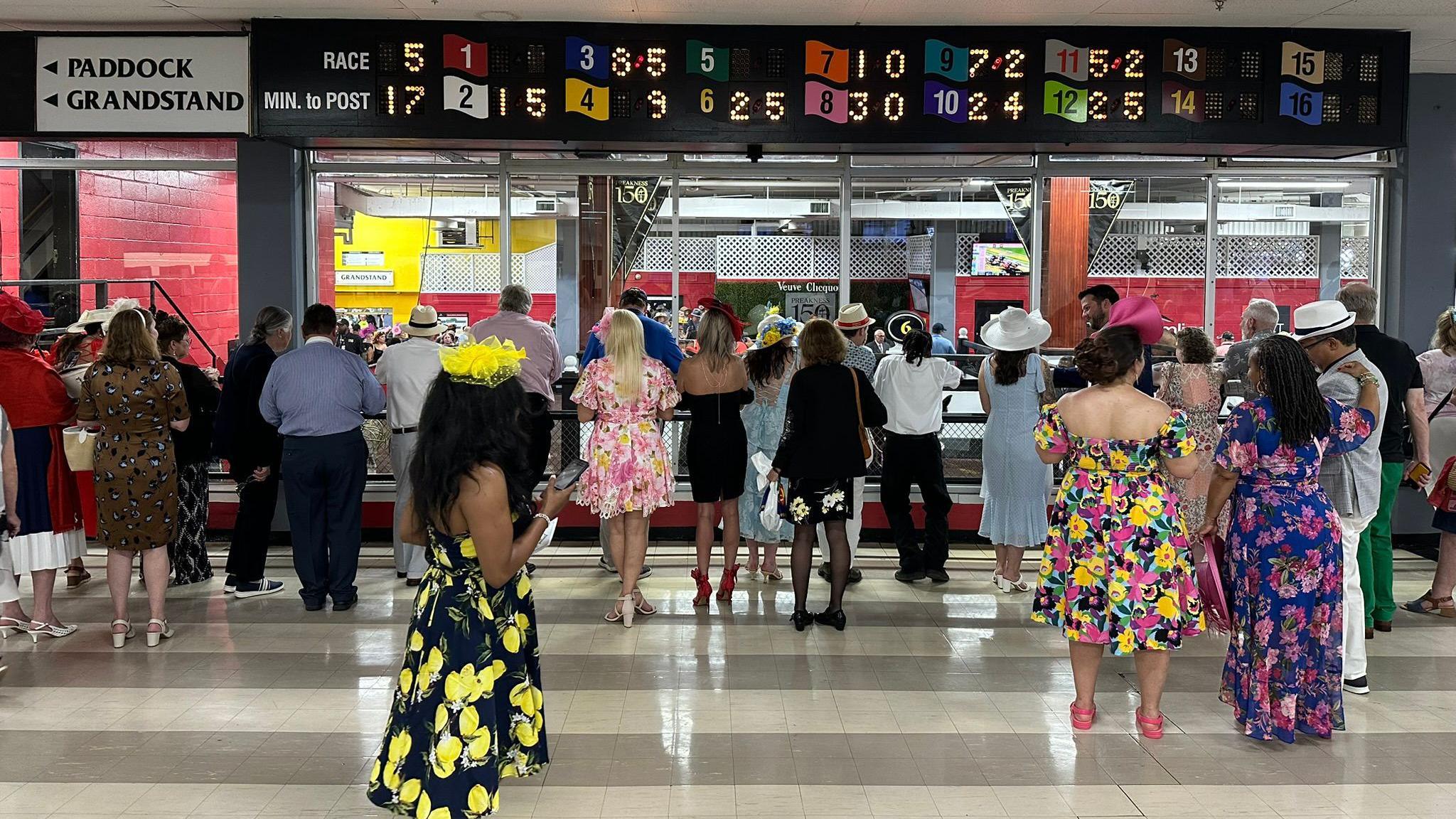
- Published
A woman balancing a dozen cocktails on a tray atop her head inched carefully through the steadily building crowds and chaos on Saturday morning at the Pimlico Race Course clubhouse.
"How much is that," a man in purple trousers yelled towards her, the glassware inches above her eyebrow clanking as she paused.
"Twenty dollars," she replied.
Ray De Rubin repeated the number in disbelief, mumbled an expletive under his breath, then said: "I'll take two."
He and his mother were at Pimlico for the first time - here to wager on US horse racing's esteemed Preakness Stakes on its 150th anniversary. Just two weeks ago, during his 14th trip to the Kentucky Derby, he won big.
"This is the exact same outfit I wore on Derby day. Same underwear, same socks, same hat," he said. "I still got my Derby wristband on."
His wager at Pimlico? "I can't tell you. I don't want the IRS coming after me," he said with a grin.
On the other side of Pimlico – just beyond the thousand-dollar seats, champagne flutes, and air-conditioned tents on the infield – five thoroughbreds idled behind the starting line. Mr De Rubin had bets on three of them.
There was a brief moment of quiet before the race. Then the gates flung open, and the horses took off. Mr De Rubin, eyes fixed on the screens above, stood frozen. But only for a moment.
"I get really loud when I watch the race. I put a lot of work into this," he said.
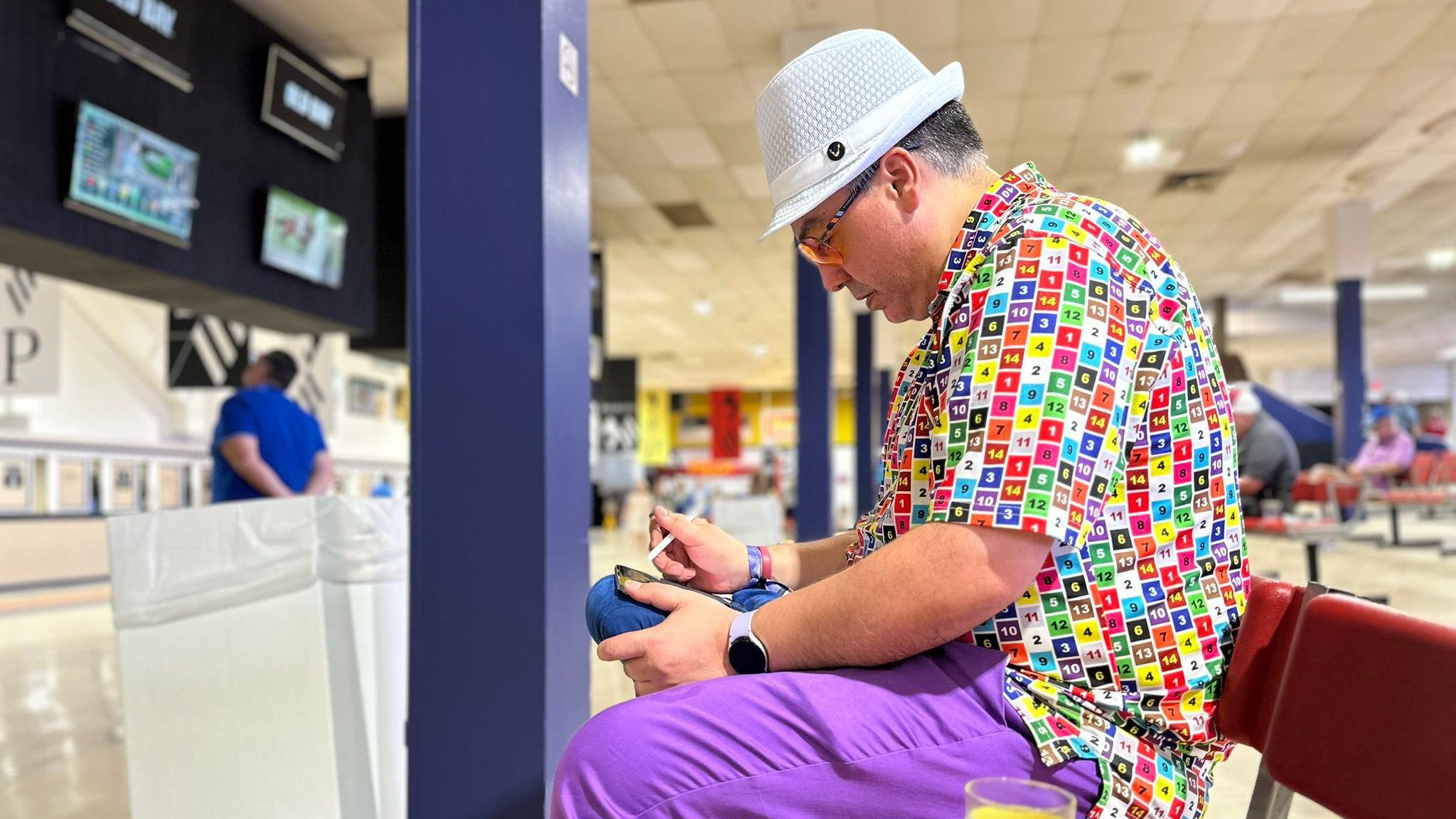
Ray De Rubin scans through the betting app on his iPad inside Pimlico's clubhouse
Tradition, but under a shadow
One of three annual thoroughbred races - along with the Kentucky Derby and the Belmont Stakes - that make up what is known as the Triple Crown, the Preakness Stakes has long been known as one of the most glamorously bacchanal events in US sports. Held at the Pimlico Race Course in Baltimore, Maryland, it brings together the rowdy and the rich. But this year, its traditions have been thrown into question.
In his second term as president, Donald Trump has enforced swift, dramatic economic policy changes, leading to historic consumer pessimism. Virtually no corner of the American market has been spared - from the fast-food hamburger to the Preakness Stakes.
Much of the current market-rattling turmoil is a result of Trump's sweeping global tariffs, announced on 2 April. Dubbed "Liberation Day", he said the new economic strategy would usher in "the golden age of America". Instead, in the 48 hours after his announcement, the S&P 500 had its worst two-day sell-off in years, as trillions of dollars were wiped from the stock market.
Three weeks later, the International Monetary Fund warned of a global recession. Even McDonald's reported a drop in sales, which the burger chain's CEO attributed to customers "grappling with uncertainty". But while the stock market has mostly recovered following tariff agreements with the UK and China, the tariffs' impact may be just beginning; mega corporations like Walmart and Amazon recently warned of price increases.
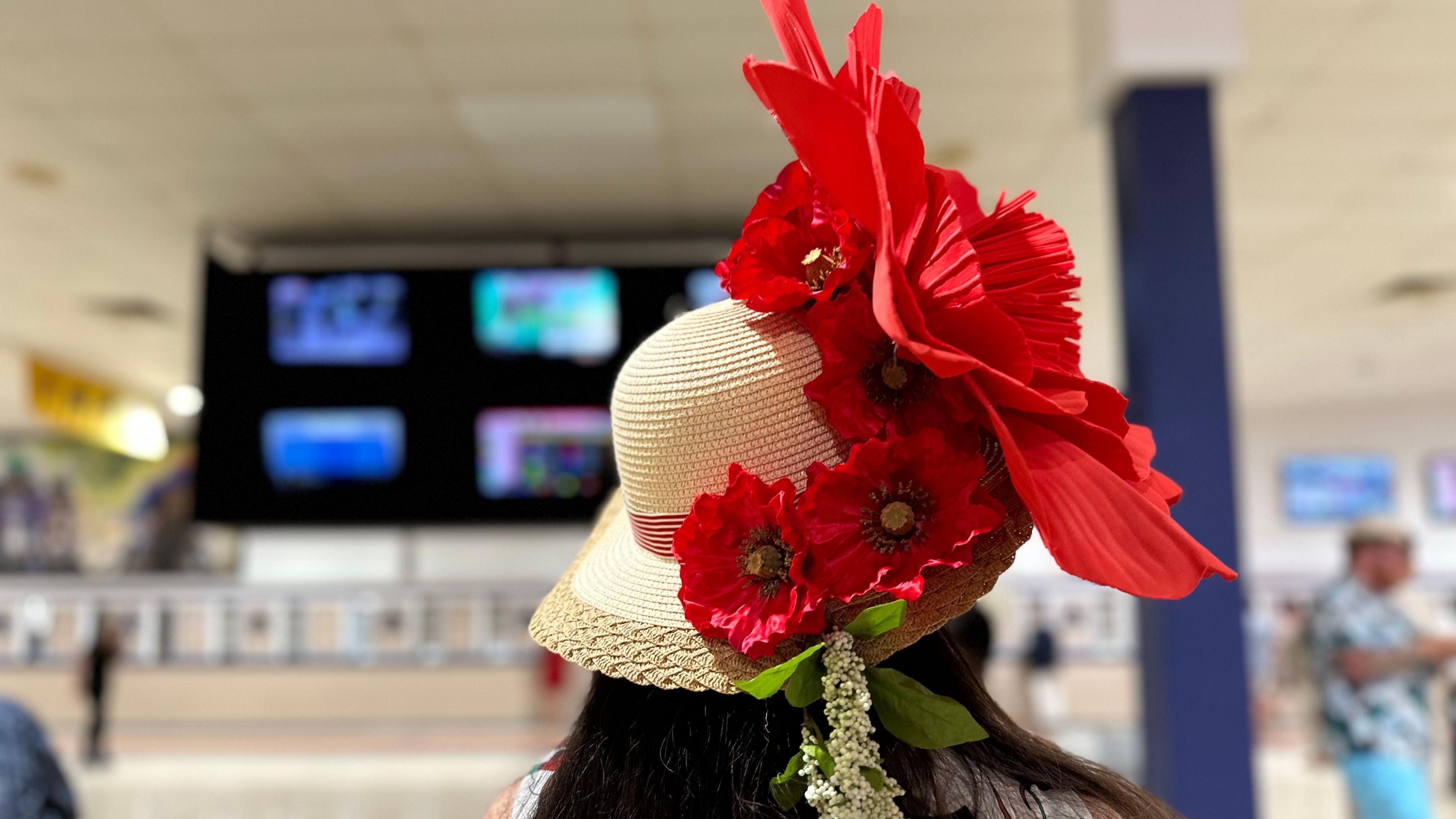
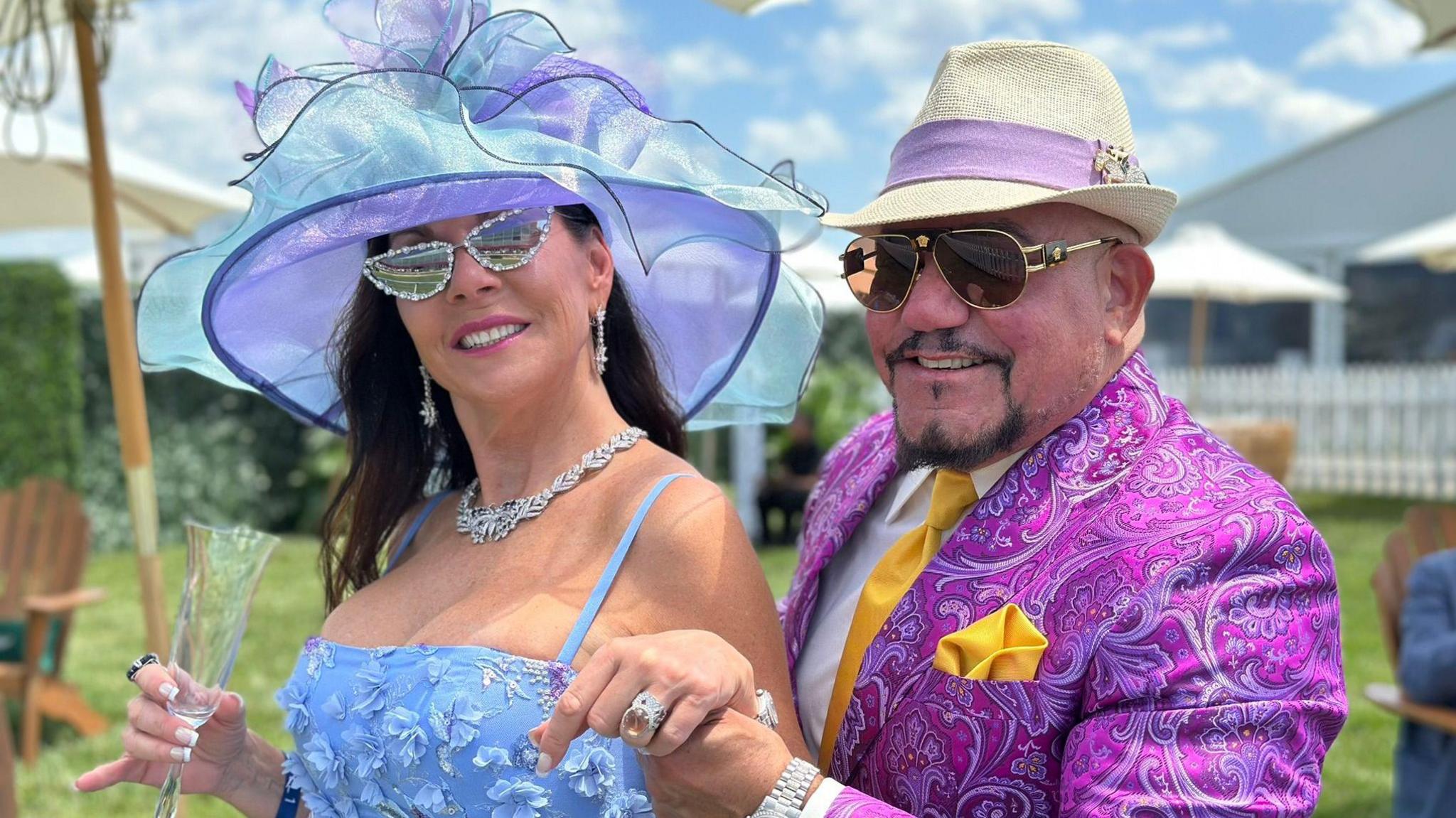
But at Pimlico, the state of Maryland is betting big, with plans to demolish the track right after Saturday's event and rebuild a new course in its place, plus a state-of-the-art training facility.
The tariffs' shadow looms here, too. "We expect there to be some kind of impact," the Maryland Stadium Authority told the BBC in a statement. But for now, they said the effects on the half-billion dollar project remain unclear.
Aside from tariffs, horse race attendance has shrunk in recent years. Just over 46,000 people attended the Preakness in 2024, down from the 131,000 that attended in 2019. The Derby drew a much larger crowd of roughly 150,000 this year but was still well under its peak of 170,000 in 2015.
Bill Carstanjen, CEO of the Derby's home, Churchill Downs, said a dip in sales this year was due to buyer "hesitancy" that "correlates perfectly" with Trump's tariffs.
"We didn't have the endless pool of demand that we've seen in prior years," Mr Carstanjen told the Lexington Herald.
'A little reprieve'
Still, gambling records this year were broken at the Derby and Preakness. Over a week before the Preakness and before the horses running were finalised, a Preakness record of $348,000 was wagered on betting futures, up from last year's record of $260,000. All just a drop in the bucket compared to the millions that will be wagered by the time the last horse crosses the finish line.
University of Kansas economics professor Justin Balthrop told the BBC that a rise in gambling could also be a sign of economic distress.
"People who reach a certain level of despair will start to take on more risk, in an effort to literally gamble their way back to a place where they feel like they can be more comfortable," Professor Balthrop said.
"You combine that with this idea that maybe they are so pessimistic, that this gives them the dopamine rush or endorphin release."
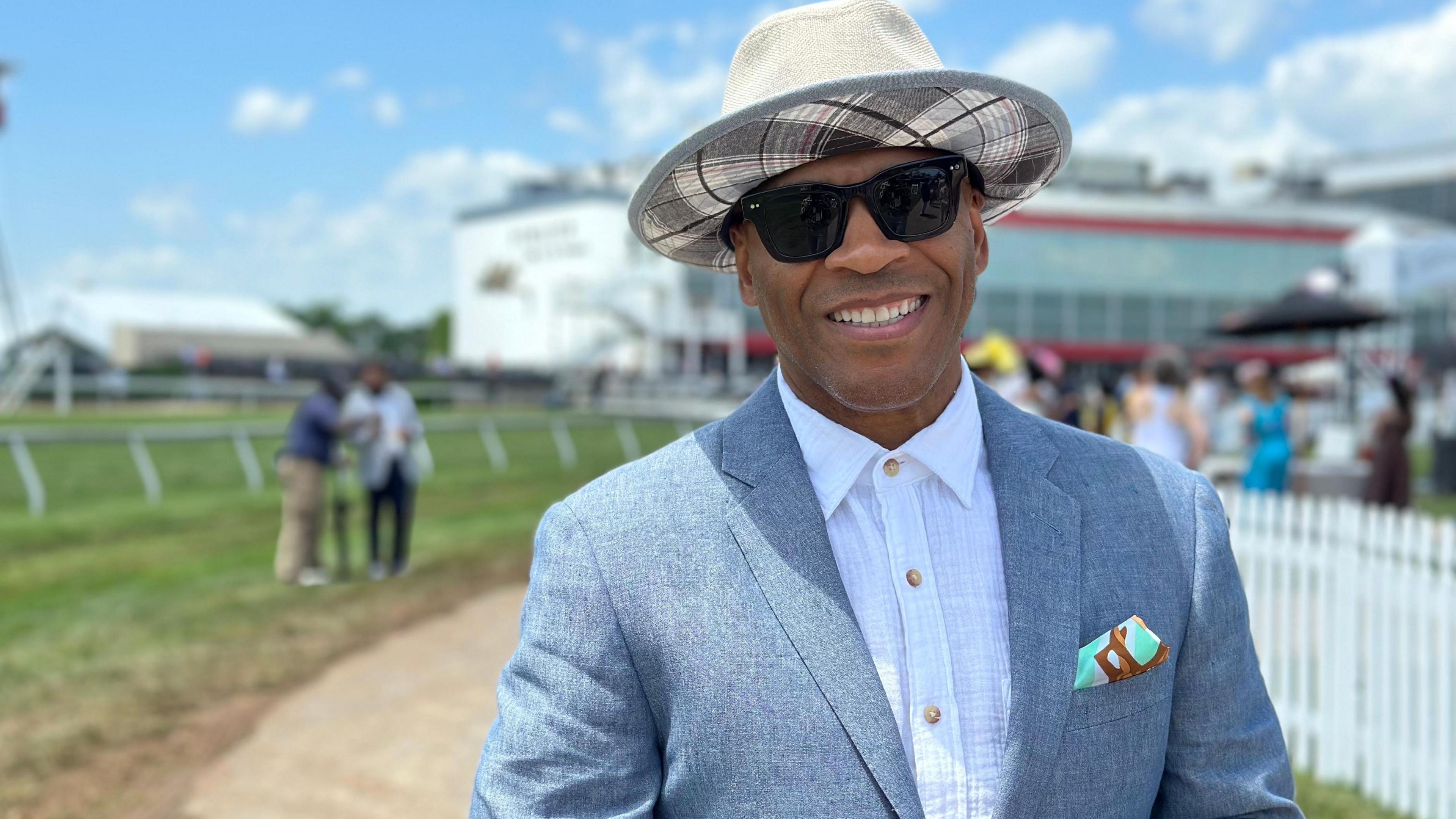
Anthony Walker is attending his first Preakness Stakes
Waiting in a long line on Pimlico's infield, Anthony Walker was among those looking for "a little reprieve".
He was glad "to be able to take a few hours away from all that instability" in the stock market as well as the disruption caused by Trump's downsizing of the federal government.
Mr Walker planned to gamble – "you can't come to the race without putting a little something out there" – but a bit less than he might have in more certain times.
"I'm wagering 50% less, for sure," he estimated. "Because of what's happening in the economy – the way this administration is taking a wrecking ball to the longstanding traditions and institutions that give credence to the American way of life."
At the Preakness, there are still endless ways to get a quick dose of gambling-induced dopamine. Even for as little as 10 cents.
"I've seen a 10 cent (wager) pay $75,000," said Peter Rotondo, who heads racing and wagering for 1/ST, the organisation running Preakness.
To do so, one would have to wager on what's called a superfecta: correctly guessing which four horses will place in the top four in the exact order, odds that are about on par with getting struck by lightning.
"That's the beauty of the super," Mr Rotondo said.
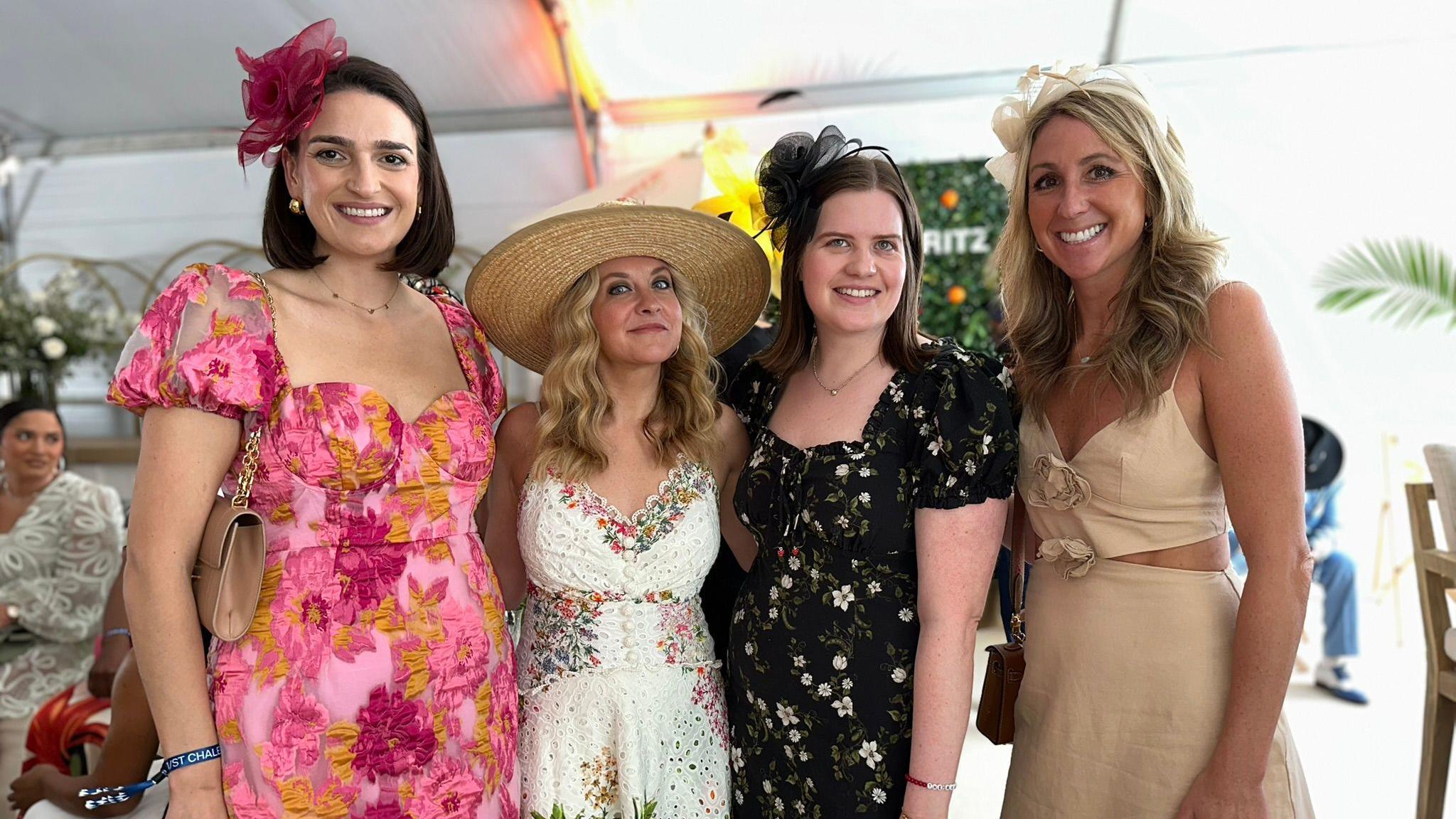
'The most salacious party in sports'
The pricey cocktail Mr De Rubin grumbled about was the Black-Eyed Susan, also Maryland's official flower. The crazed concoction - bourbon, vodka, and a splash of mixers - leaves one to wonder whether it's truly a tribute to the state flower or a wink to the likely black eye after having too many.
The drink is one of many traditions at the annual event. There's also the decades-old Tiffany & Co-made trophy called the Woodlawn Vase, considered "the most valuable trophy in sports". Made of 30lb of sterling silver, it's valued at an estimated $4m (£3m), and thus is kept in a museum most of the year. The Preakness winner leaves with a replica.
But for many, the Preakness wouldn't be the Preakness without the party on the infield.
"I went a lot in my 20s and 30s. It was an absolutely crazy party," Bobby Duke, 51, said in an email to the BBC. "In 1998, a guy jumped the fence and tried to punch a horse while racing. It's on YouTube."
Though Pimlico always had offerings for the elegant, fans like Mr Duke fondly remember piling into the infield for "the most salacious party on the sports calendar", as ESPN once put it, where patrons would race across a long row of porta-pottys while dodging beer cans hurled at them by inebriated onlookers. (That tradition ended around 2009, when Pimlico stopped its BYOB policy.)
Maryland officials said the new Pimlico will become a year-round racing facility, and hopefully bring an economic boost to the low-income Park Heights neighbourhood surrounding it.
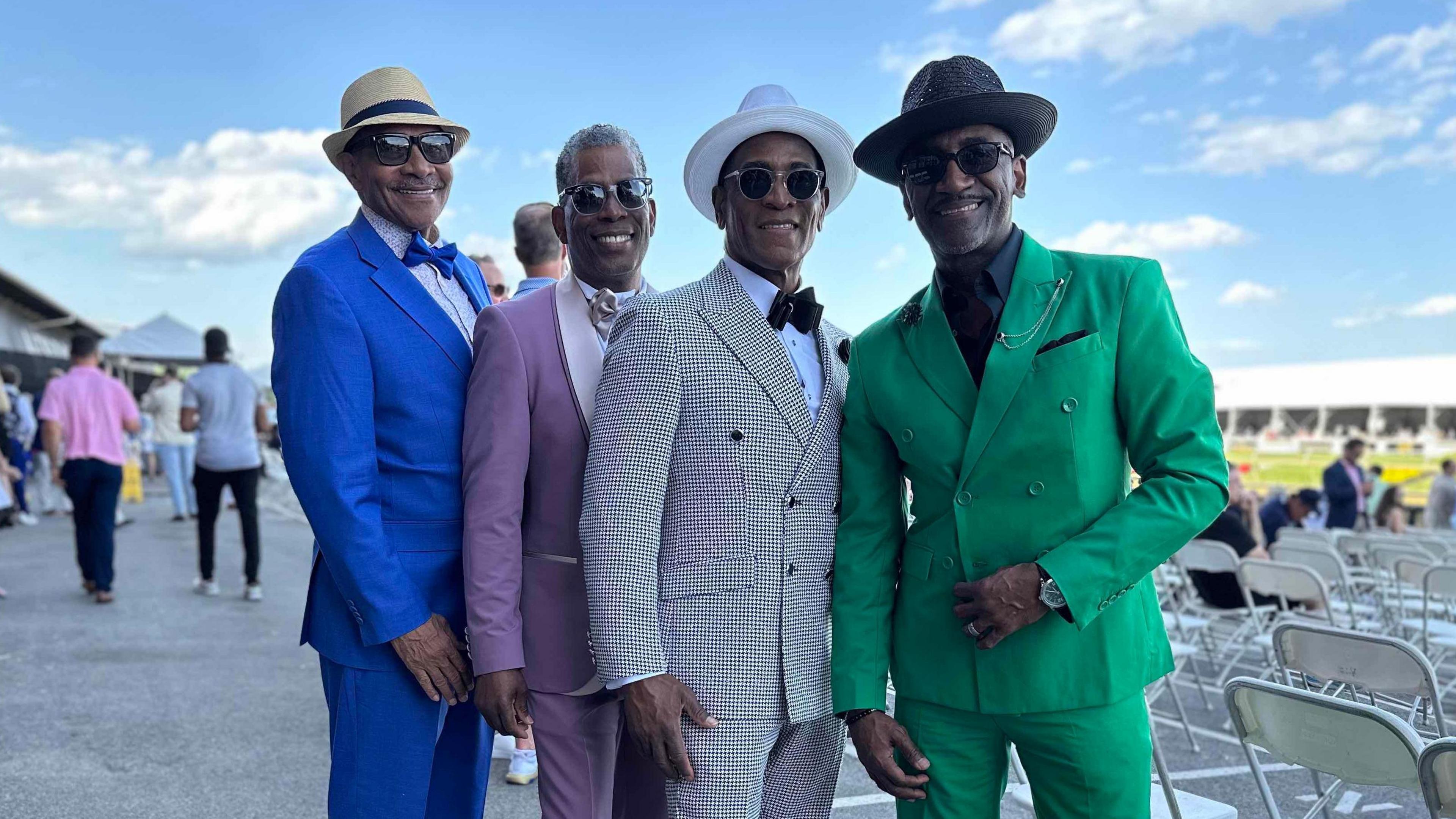
Watch the horses, not the stock market
In his purple pants and every-colour-of-the-rainbow shirt, Mr De Rubin grew agitated as his luck began to unravel during the five-horse race.
"(Horse number five) is dead last. I don't think they're going to catch this," he said with growing animation, rattling the ice in his Black-Eyed Susan. He placed bets on horses one, three and five.
"Oh, (crap), the three horse. Here comes the one horse. Come on, one!"
In a span of about three minutes, the anticipation, anxiety, fear and hope all came crashing to an end. Mr De Rubin didn't win. But he didn't lose either. The even spread on the winning horse basically gave him back what he put into it.
He compared the experience to today's seesaw stock market.
"Investing, and betting on horses, is gambling. You have ups and downs," he said.
His stock portfolio has taken a wild downward spin through Trump's global tariff tit-for-tat. But recently it sprang back into the green and is up around 20%, he said.
Unlike the horses, "you can't watch the market. It'll give you a heart attack", he advised.
"I have faith in Trump. He's a little crazy with it right now, but it'll all work out."